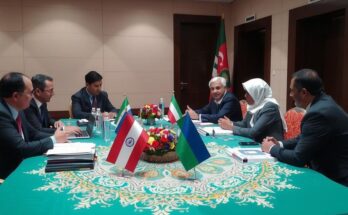Saudi Arabia, the UAE, and Egypt have subtly shifted their diplomatic responses to Israel’s military actions against Iran, favoring measured language over denunciation. This indicates a potential realignment of alliances, with these countries recognizing mutual interests in countering Iranian influence and enhancing regional stability, rather than rigidly opposing Israel.
In the complex milieu of Middle Eastern geopolitics, the responses of Saudi Arabia, the United Arab Emirates (UAE), and Egypt to Israel’s recent military actions against an Iranian target have been strikingly subdued. Rather than issuing the customary loud denunciations of Israeli military operations, these nations have adopted a more measured tone, which may signify a significant reorientation of their diplomatic postures. Each nation, while invoking themes of sovereignty and de-escalation, has conspicuously refrained from explicitly condemning Israel, opting instead to highlight overarching threats to regional stability. The UAE has articulated a response that emphasizes “utmost self-restraint” while condemning the targeting of Iranian interests. However, the choice of language suggests a preference for diplomatic dialogue over hostilities, consistent with the UAE’s recent initiatives towards greater cooperation with Israel, particularly following the Abraham Accords. The UAE’s insistence on dialogue illustrates an acknowledgment of Israel’s security considerations, despite maintaining a formal stance against military aggression. Similarly, Saudi Arabia’s statement regarding the incident addresses it as a “violation of sovereignty,” yet underscores the necessity for a secure and stable regional environment. The evolution in Saudi rhetoric reflects a significant shift from past practices, highlighting a growing tolerance for Israel’s actions as a means to counter Iranian aggression. This tempered response suggests an internal strategic recalibration aimed at balancing regional dynamics and minimizing isolation of Israel. Egypt’s reaction is indicative of its diplomatic pragmatism. By broadening the discourse to encompass general threats to regional security and advocating for a “swift ceasefire,” Egypt seeks to deflect the focus from Israel and recognize the importance of stability across its borders. This approach entails Egypt’s anticipated role as a mediator, underscoring its vested interest in preventing conflict escalation that could have dire repercussions for its own security. The collective reaction of these states—a hesitant condemnation that avoids direct confrontation with Israel—may reveal a deeper strategic realignment. While these nations still publicly support Palestinian rights and the cohesion of the Muslim world, their priority appears to have shifted towards countering Iranian hegemony, fostering economic stability, and enhancing national security. This nuanced diplomatic stance indicates an emerging consensus that sees Israel not merely as an adversary, but as a potential ally against shared threats in the region.
The article discusses the recent responses of Saudi Arabia, the UAE, and Egypt to a military strike by Israel on Iran, noting a subtle shift in their diplomatic language. Traditionally, the Arab states condemned Israeli military actions vehemently; however, the recent statements indicate a more cautious and diplomatic approach. This change is interpreted as a reflection of shifting alliances and priorities within the region, particularly concerning the shared interest in countering Iran’s influence.
In summary, the evolution of diplomatic language from Saudi Arabia, the UAE, and Egypt reveals a transformative moment in Middle Eastern politics. These nations’ restrained responses to Israeli military actions reflect a strategic pivot towards recognizing shared interests in regional stability and security, potentially paving the way for new collaborative frameworks in the future. This development may signify an emerging trend where Arab nations increasingly view Israel as a partner in counterbalancing Iranian influence, thereby transforming long-standing geopolitical dynamics.
Original Source: www.jpost.com




